I was reading an interview with Cindy Pon at Squeaky Books where the blogger asked her about the names of her two brothers in The Silver Phoenix as well as why the titular character has a name that is translated and sounds like a title. It was a very good question:
One of the things I was really curious about in the books were the names of the characters. Some characters had one-part names, some had two, and some had three! Is there any meaning to how many names there are? And do you have to do extra research to create these names (more than someone who makes up random European-sounding names, I mean)? I’m specifically curious about Li Rong And Silver Phoenix. Because wasn’t his family name Li? So is he Li Li Rong? And why does Silver Phoenix have a name that seems more like a title?
You can read Cindy’s answer and the entire interview here: Squeaky Books – Author Interview with Cindy Pon
I’ve seen similar questions about my naming choices, such as to why I named all my characters with Chinese names in My Fair Concubine, but Fei Long’s sister Pearl is referred to by a translated name.
Needless to say, in Cindy Pon’s case and mine, we put a lot of thought into how we name and refer to our characters. These were authorial decisions and have varying reader reactions. For instance, in Lisa See’s Snow Flower and the Secret Fan, she refers to her character as “Snow Flower”, her translated name. In See’s Shanghai Girls, she explains why her protagonists go by more western names: May (the western spelling of Mei) and Pearl, though in an intimate moment Pearl’s husband calls her “Zhu Long” which is her full Chinese name of Pearl Dragon.
The naming of Chinese characters and even the choice of Romanization, pinyin vs. Wade-Giles, can be a hot topic in academic as well as fiction circles. (In The Taming of Mei Lin, I didn’t realize that I named a character “Cho” and another character “Zhou”. Only when I was trying to read it aloud for an audio recording did I realize that these names, though they look distinct to the eye, sound exactly the same!!)
As authors writing Asian-set and Asian themed fiction in the English language, these are choices we have to face. There is no definitive “right” answer and no matter what your choice, someone will likely object. Language is an issue very close to culture and the heart as well as politics and power. As my linguistics professor used to say, “Language is a dialect with an army and a navy.”
So my character names are often mistaken in reviews. I don’t take any offense, as I realize that Asian naming standards are new and different to many Westerners. On top of that, I don’t stop in my books to explain the whys and wheres of naming, believing that a Chinese character in his own POV wouldn’t be thinking of explaining naming traditions to other Chinese characters, you know what I mean? Heck, as I just noted, there are debates and questions among people familiar with the usage.
I’m reminded though of all my years in school when teachers would mangle my name. (BTW, for those who don’t already know, my real name isn’t “Lin.” It’s much more daunting looking name with consonants that look like they shouldn’t go together.) I would let it slide, “Oh, that’s okay. I know what you mean.” I’d answer to any reasonable mispronunciation.
But then I realized, these teachers and classmates didn’t need me to make it easier. They earnestly wanted to know the right way to do it. Just as bloggers and readers want to know the right way.
So on Chinese names:
First, let me say I take a huge liberty by not using courtesy or style names. Specifically, it’s rude for someone younger or of lower status to refer to an elder or someone of higher status directly by name. (This made it SO hard on me to go to friends’ houses where the parents were like, call me Linda!) So courtesy names would be assigned in imperial times. These names would be used among associates who were not close. Honorifics such as “sir”, “lord”, “uncle”, “brother”, etc. were also commonly used. Birth names were only for very intimate circles, family or the closest of friends.
So for instance, in Butterfly Swords, when Ai Li gives the western barbarian Ryam her true name, it is not likely any commoner has heard of that name associated with the imperial princess. She would commonly be referred to by a courtesy name.
Courtesy names would come into effect for instance with a man like Li Tao, in The Dragon and the Pearl, who was a powerful general/military governor. But everyone calls him by his actual name in the book. I did it for readability and also to bring readers closer to the characters. Courtesy names, by their very nature, are meant to be distancing.
An Illicit Temptation is the closest I come to explaining courtesy names as both the heroine and hero were assigned new names by the court. Kwan-li actually explains that his name was given to him and it was a courtesy name. His actual name wasn’t Han Chinese. I actually chose a Xianbei name, Tailuo, as I only had a handful of Khitan names to choose from. An-Ming is similarly a courtesy name assigned to Dao. The names in this case double as their “alter-egos” which fits the story.
Now what about given names? Why do I keep the last names on some characters such as “Li Tao”, whose name represents his family name (though we learn he just adopted that name…which is also not uncommon, BTW) and given name, while other characters go by just their given names such as “Fei Long” or “Bai Shen” in My Fair Concubine.
So here’s the quick and dirty: In Chinese names, the family name always comes first. (I like how in the Olympics, they show the family name first and do ALLCAPS so you realize this is the family name. It seems that all announcers nowadays know to get it right.) Chinese given names can be a single character such as “Tao” or they can be compound names such as “Bai Shen”. Historically, it’s rare, except under the most intimate of situations with friends and family, to refer to someone by just their given name. This seems especially true if they only have a single name versus a compound name. So even someone like Suyin, who was eventually Li Tao’s love interest, would call him by “Li Tao”. Suyin, whose given name has two characters, and is also of lower status than Li Tao — it just “felt” right to have him refer to her just by her given name.
Similarly, in My Fair Concubine, you’ll see Fei Long and Bai Shen refer to themselves by their full names when trying to be mockingly formal:
“The sun rises in the west today. Li Bai Shen is lecturing me,” Fei Long said.
“Snow falls in the summer. Chang Fei Long is making a joke.”
At other times, because they are good friends, they’ll refer to themselves by their given names. But note that they always use the compound name. Never just “Fei” or “Bai”. Often the compound name means something, so when you break out a word like that, it seems awkward and doesn’t make sense any more to the person.
Note that this is also different from modern usage. My true name is a compound name that my mother gave me, quite poetically, to match up with my sister’s name. My sister’s name was also the name of a famous princess. But in usage at home and in public, we’ve broken apart those names and very informally just use the root name. This makes our names much less pretty, because the root names are actually common boy’s names. Cause boys are more likely to have non-compound, non-pretty names, I guess. Oh, also I must give the disclaimer that I’m not Chinese. But Vietnamese names have some common usage with Chinese names.
Now that I’ve laid out these rules, I actually break them here and there in my stories. As I’m sure there are breaks when people who are friends talk to one another. In Capturing the Silken Thief, the hero who is a farmer turned scholar, is named Luo Cheng. His family is Luo and his given name is Cheng. He is referred to in the story frequently as “Cheng”, which isn’t incorrect, but given that the heroine (and the reader) doesn’t know him at first, an unfamiliar person would most likely refer to him by last name, “Luo”, if they were going to drop one name or the other. On the other hand, when referring to himself, I was faced with whether or not he would think of himself as Luo Cheng or just Cheng. I chose the latter.
I have seen other questions about naming. For instance, the name “Chang” is the same as the name “Zhang”. It’s just two different choices for romanization. When I’ve checked usage, I see that even academic papers don’t always conform to one style, so I do apologize if I offend anyone with romanization, but I am aware that the question of which style to use is not one that I alone grapple with. It’s also a choice that I make entirely on my own. My editor and publisher use the romanization I provide verbatim. My editor has in fact noticed how I take liberties with name usage and has asked me about it.
And then we haven’t even gotten into dialects and regions. Everyone in China doesn’t speak “Chinese”, especially in the Tang Dynasty. In the cosmopolitan settings like Changan, I took liberties with mixing all sorts of names together. In my upcoming book, it’s set in Fujian province, so I tried to make the names conform to Fujian names whenever appropriate.
And finally, there are days when I curse at the authors who can just name their characters Henry or John or even Rafe and be done with it. And no one is going to question or be offended by their choice. *shakes fist* Professional jealousy is an ugly thing sometimes. 🙂



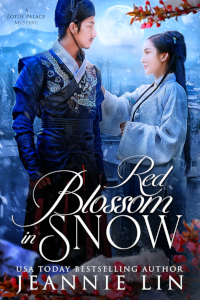
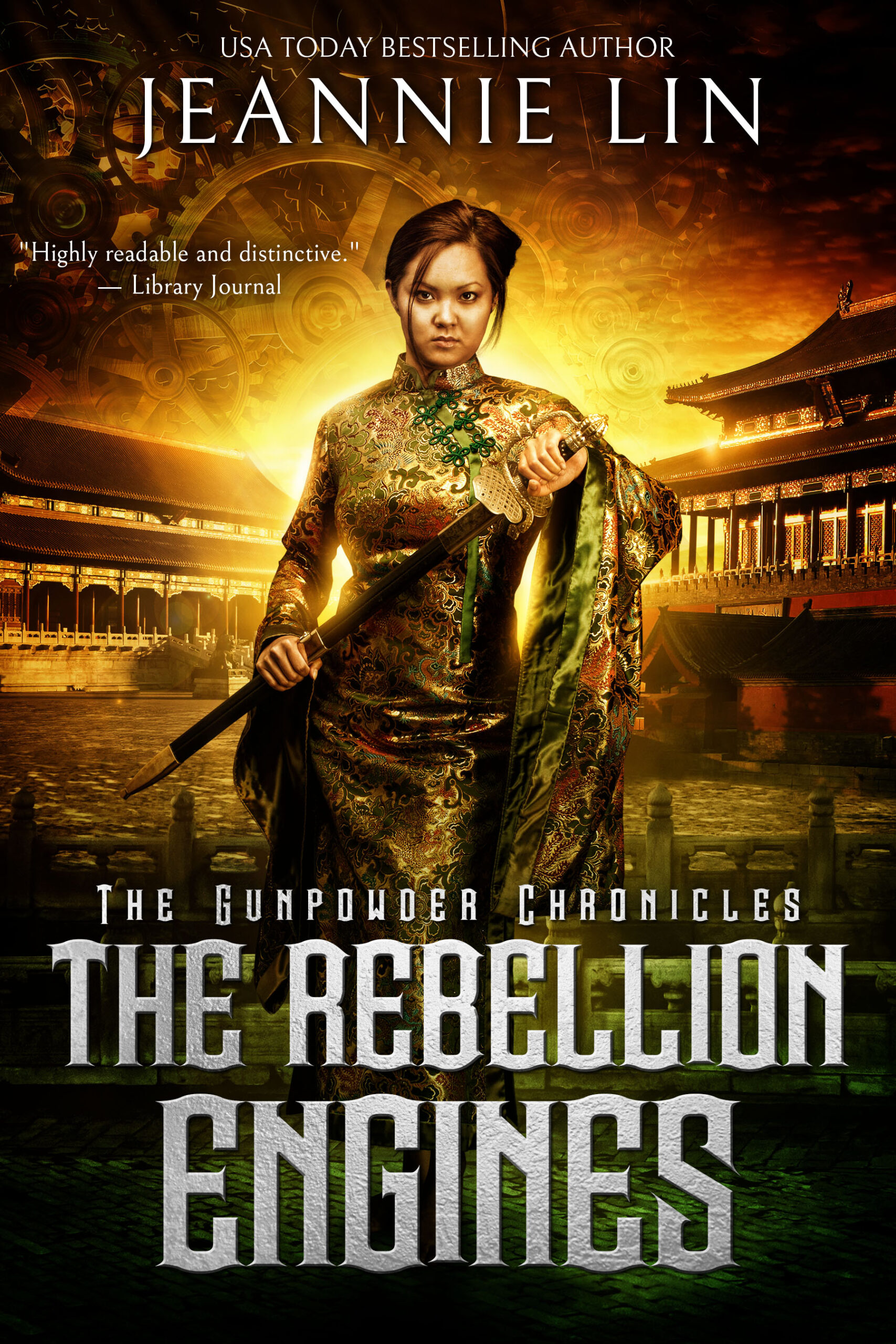
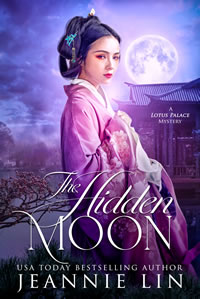
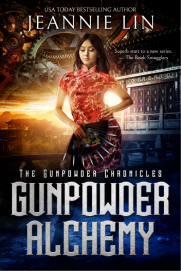
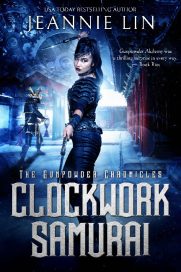
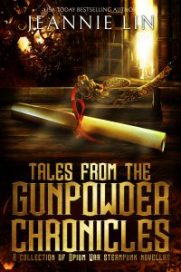
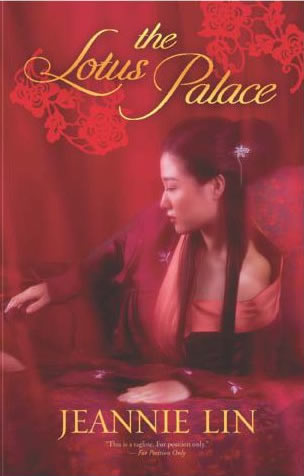
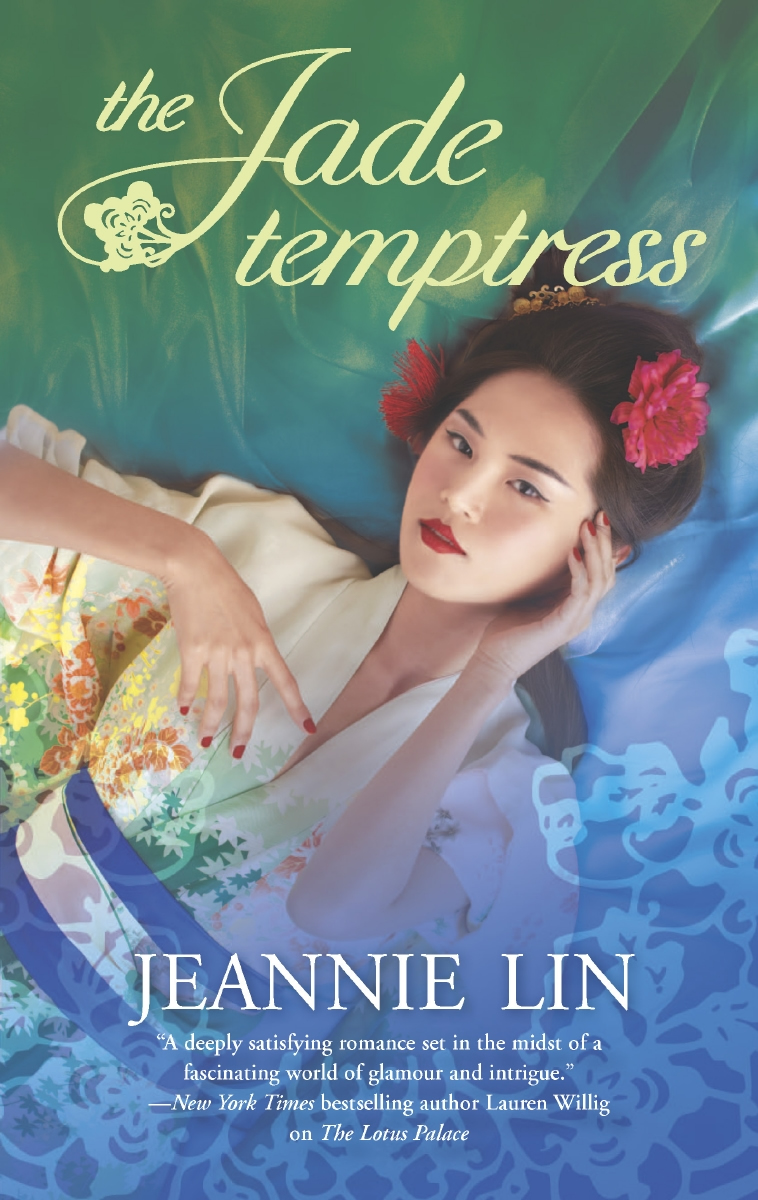
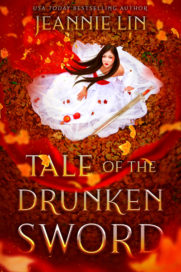


Sep 25, 2012 @ 09:57:20
Thanks for the illumination. I’ve struggled with this in some writing, and it’s nice to know I’m not the only one. 😉
Sep 25, 2012 @ 10:41:57
This was one of the most interesting articles I’ve read on naming characters. Thank you for clarifying some of my own misconceptions. 🙂
Sep 25, 2012 @ 16:15:54
Excellent article. I have to deal with these same issues with my Aztec SF/F/Romance, for the names are known to be extremely long, tongue-twisters with odd letter combinations (and that’s before tacking on the class, political and religious titles). I’m always looking to see how other people handle this kind of thing, so thank you for sharing!
Sep 26, 2012 @ 08:50:31
Gail & Cassandra – I know it always helps me to bounce ideas off of people with similar thoughts. It beats talking to myself all the time — which is sort of what the blog is. 🙂
TL – Great to see you here. I believe that Aztec names are actually MUCH more difficult than Chinese names to the mainstream eye & ear. But the good thing about SF/F is that readers (at least I know I am) are used to unusual names for people and places — I’m thinking Dune, oh the apostrophes! — and so there’s a little bit more patience in those genres. Romance is a 50/50. Some will be able to accept the odd names, but others will find it too distancing. It’s not to say romance readers are narrow-minded–the nature of romance is to bring people in very intimately into emotions and I do believe that’s a bit harder when readers are struggling over internalizing the worldbuilding. As you made a good point-names are the first line in a much greater battle involving other more complex cultural elements! It’s like an extra step, or steps, readers have to take before they can get to the emotional core of the story, you know? But I welcome the challenge as I’m sure you do too!
Sep 26, 2012 @ 11:35:47
Thank you for the insight! I, having studied Japanese and Korean know a little more than the average person about what goes in the background with the Kanji/Hanja; but having a Chinese perspective is refreshing.Reading the article has made me appreciate how big of a challenge it can be to write about an unfamiliar culture in an unfamiliar time.
Sep 26, 2012 @ 23:03:29
Hello Aoi!
How wonderful it must be to have studied multiple languages! I learned some crash course Korean because I worked there–namely I stumbled around and learned how to buy things and give directions to taxi drivers. Even though the language is entirely different, it did help to know how to speak another Asian language just in terms of understanding how to address people.
Oct 01, 2012 @ 08:13:25
Thanks so much for the lengthy explanation Jeannie, it was interesting! (Hungarian names also follow th same order as Chinese/Japanese names with first the family name then the first name, so understanding that is quite easy for me ;-))
Oct 02, 2012 @ 14:28:51
What a helpful article! I’m writing a Chinese fantasy myself, and I’ve struggled with using courtesy names, given names, and whether or not they need to be in English or in pinyin. I’ve found myself juggling with them, but I haven’t set down any rules to use certain names under specific circumstances. Of course, it’s a little different when you’re a native Chinese speaker and you have to take into account what names are comfortable for a native English speaker. 🙂 and that’s not taking into account for the regional dialects!
Oct 02, 2012 @ 20:26:35
Hi Stella!
I didn’t realize that about Hungarian names. Interesting! Though, to me, I always thought it made sense that family centered cultures would retain this practice — symbolically the family comes first, right? — and individualistic cultures would move towards a given name then family name style. Then nowadays, we have people casting off family names and given names and coming up with their own names. I think there’s a university thesis in there somewhere 🙂
Oct 02, 2012 @ 20:31:10
D –
Welcome! And best of luck with your Chinese fantasy. There needs to be more of those in the market, don’t you think?
I sympathize with your plight! I don’t know if it helps, but I believe Passing Under Heaven by Justin Hill (a fabulous fictionalization of the life of courtesan/poet Yu Xuanji) juggles English, courtesy, and given names in a way that I found rather balanced.